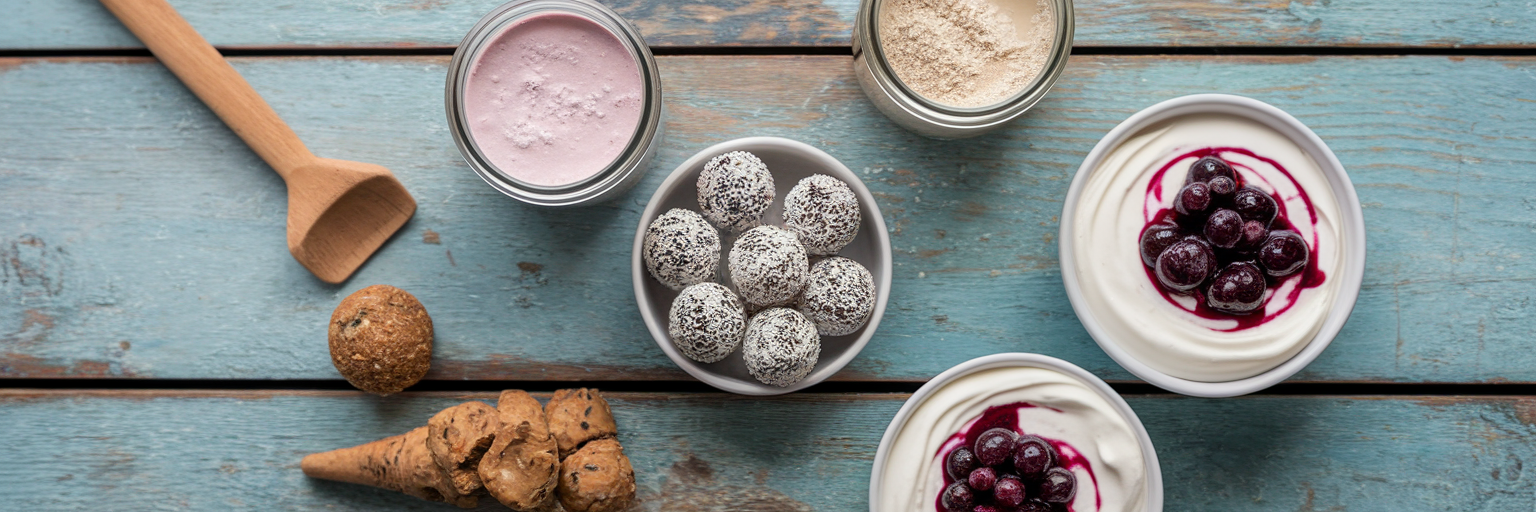The Vicious Cycle of Stress and Cravings
We’ve all been there. After a long, demanding day, the first thing you reach for is a cookie, a bag of chips, or a pint of ice cream. It feels like a deserved reward, but it’s often a biological reaction we don't fully control. This isn't about a lack of willpower; it's about your body's internal wiring.
Think of your body’s stress response as an emergency alarm system. When you're under pressure, whether from a work deadline or personal worries, this alarm sounds off. It releases a flood of hormones, most notably cortisol. Cortisol’s job is to prepare you for a "fight or flight" situation, and it does this by telling your brain it needs quick, high-energy fuel. The fastest sources? Sugar and fat.
That’s why you suddenly crave a donut instead of a salad. When you give in, your brain gets a temporary hit of dopamine, a feel-good chemical that makes you feel better for a moment. But this relief is short-lived. Soon after, the infamous sugar crash arrives, leaving you feeling tired, irritable, and even more stressed than before. This dip in energy triggers the alarm all over again, and the cycle continues.
Understanding this loop is the first step in figuring out how to stop stress eating. By recognizing that your body is simply following an old biological script, you can start to rewrite the narrative with smarter choices that offer stability instead of a rollercoaster of highs and lows.
How Protein Builds Resilience to Stress

If the stress-craving cycle is a rollercoaster, protein is the steady, reliable monorail that runs alongside it. Instead of sending your body on a wild ride of energy spikes and crashes, protein provides a foundation for stability, helping you feel more in control, both physically and mentally.
Achieving Stable Blood Sugar Levels
Unlike the simple carbohydrates found in sugary snacks, which hit your bloodstream like a flash flood, protein digests slowly. This gradual process provides a steady release of energy, preventing the dramatic blood sugar spikes and subsequent crashes that leave you reaching for another quick fix. A stable foundation means fewer frantic signals from your brain demanding emergency fuel.
Supporting Your Brain's Chemical Balance
Your mood is deeply connected to your diet. Protein is made of amino acids, which are the building blocks for neurotransmitters like serotonin and dopamine. These chemicals help regulate mood, sleep, and feelings of well-being. When stress depletes these resources, a diet rich in protein helps replenish them. In fact, some research is exploring the link between a plant based diet and anxiety, with promising findings. A study from the National Center for Biotechnology Information suggests that diets higher in plant protein may be associated with better mental health outcomes.
Promoting Lasting Fullness and Satiety
Have you ever eaten a huge bowl of sugary cereal only to feel hungry an hour later? That’s because it lacks staying power. Protein, on the other hand, is known for its ability to promote satiety, or the feeling of being full and satisfied. When you feel full, you’re far less likely to engage in mindless snacking. This makes a high-quality supplement one of the best protein powder for satiety options available. If you're looking for the right fit, exploring some of the best protein powders we offer can help you find a match for your specific goals.
| Time After Eating | Typical High-Carb Snack (e.g., Candy Bar) | High-Protein Snack (e.g., Protein Shake) |
|---|---|---|
| 30 Minutes | Sudden energy spike, temporary mood lift. | Gradual energy increase, feeling of satisfaction. |
| 60 Minutes | Energy starts to dip, feeling a bit sluggish. | Stable energy, feeling focused and full. |
| 90 Minutes | Energy crash, irritability, new cravings emerge. | Sustained energy, no significant cravings. |
This table illustrates the typical energy response after consuming different types of snacks. The data reflects general metabolic principles of carbohydrate versus protein digestion.
The Specific Advantages of Vegan Protein Powder
While any good protein source helps, vegan protein powder offers some unique benefits, especially when you're trying to manage stress. For anyone with a packed schedule, it’s a remarkably simple tool to have in your corner.
The most obvious advantage is convenience. When you’re stressed and short on time, the last thing you want is a complicated meal. A protein shake can be prepared in under a minute, giving you a powerful dose of nutrients without the fuss. It’s the perfect answer for those moments when you’re tempted to grab something from the vending machine.
Many people also find vegan protein powders to be gentler on their digestive system. If you’ve ever felt bloated or uncomfortable after having whey protein, you’re not alone. Plant-based proteins, derived from sources like peas, brown rice, and pumpkin seeds, are often easier to digest, preventing that heavy feeling that can weigh you down even more.
Beyond just protein, these powders often come with bonus nutrients. Plant sources naturally contain fiber, vitamins, and minerals that contribute to your overall wellness. This makes vegan protein for stress relief a multi-faceted approach. You’re not just curbing a craving; you’re nourishing your body from the inside out. Finding a great-tasting option, like our rich Chocolate Vegan Protein, makes sticking to your goals feel like a treat, not a chore.
Practical Ways to Use Vegan Protein for Cravings

Knowing that protein helps is one thing; putting it into practice is another. The key is to make it an easy, natural part of your day. Here are a few simple strategies to get you started.
- Start Your Day Strong. A protein-rich breakfast sets the tone for the entire day by stabilizing your blood sugar from the get-go. Instead of a sugary pastry, blend a scoop of vegan protein powder into a smoothie with spinach, a banana, and some almond milk. It’s a quick, delicious way to front-load your day with nutrients.
- Plan for Smart Snack Swaps. Cravings often strike in the afternoon. Instead of letting them catch you off guard, be prepared. Keep a shaker bottle and a single-serving packet of protein powder at your desk. When you feel the urge for a sugary snack, you have a healthy alternative ready in seconds.
- Prep Your Protein. A little planning goes a long way. On Sunday, you can mix a scoop of protein powder into overnight oats for the week or bake a batch of protein muffins. Having these grab-and-go options makes it easy to manage sugar cravings naturally without having to think about it. For more inspiration, check out these 3 easy vegan protein recipes you’ll actually crave.
- Aim for the Right Amount. For most people, a serving of 25-35 grams of protein per meal is a great target for promoting satiety and stabilizing energy. A single scoop of high-quality vegan protein powder usually provides a significant portion of this, making it an efficient way to meet your daily goals.
| Instead of This... | Try This Healthy Swap | The Benefit |
|---|---|---|
| Candy Bar (2 oz) | Protein shake with 1 scoop vegan protein | Lasting energy, curbs sugar crash |
| Bag of Potato Chips (1 oz) | Veggies with protein-boosted yogurt dip | More filling, adds fiber & nutrients |
| Sugary Cereal | Oatmeal with a scoop of protein powder | Stabilizes blood sugar for hours |
| Store-Bought Muffin | Homemade protein balls or bar | Controls ingredients, boosts protein |
Nutritional values are approximate and can vary by brand and specific ingredients. This table serves as a guide for making more mindful snacking choices.
Beyond Protein: A Holistic Approach to Stress
While vegan protein is a powerful tool for managing the physical side of stress cravings, true resilience comes from a more holistic approach. It’s about creating a lifestyle that supports both your body and your mind.
Think of it this way: protein helps you build a stronger foundation, but these other habits ensure the whole structure remains sound.
- Mindful Eating: Before you reach for a snack, take a breath. Ask yourself: Am I truly hungry, or am I feeling stressed, bored, or tired? This simple pause can help you distinguish between physical hunger and an emotional trigger.
- Movement and Sleep: You can’t out-supplement a lack of rest or movement. Regular exercise, even a brisk walk, helps burn off excess cortisol. Quality sleep is essential for regulating the hormones that control appetite and stress.
- Create a Sustainable Routine: Don’t try to change everything at once. Start by adding one protein shake to your day or swapping one unhealthy snack for a better alternative. Small, consistent changes are what lead to lasting results.
Building healthier habits is a journey, and having the right support makes all the difference. What's your go-to healthy snack when you're stressed? Share your ideas in the comments below!
If you're ready to equip your kitchen with tools that support your wellness goals, feel free to explore all of our products designed to help you thrive.



